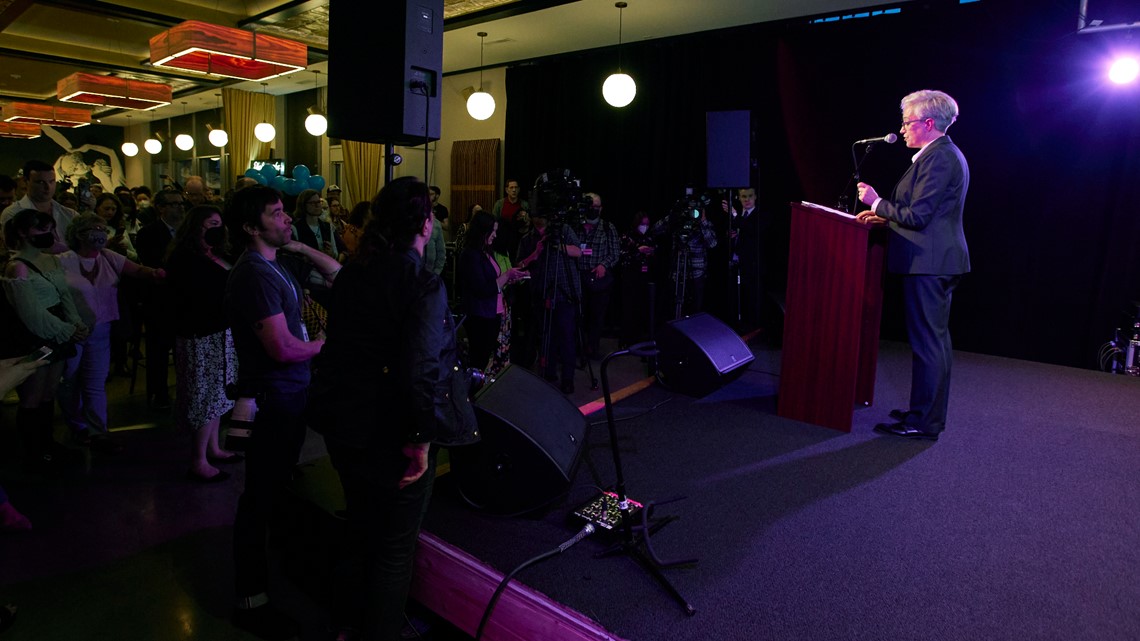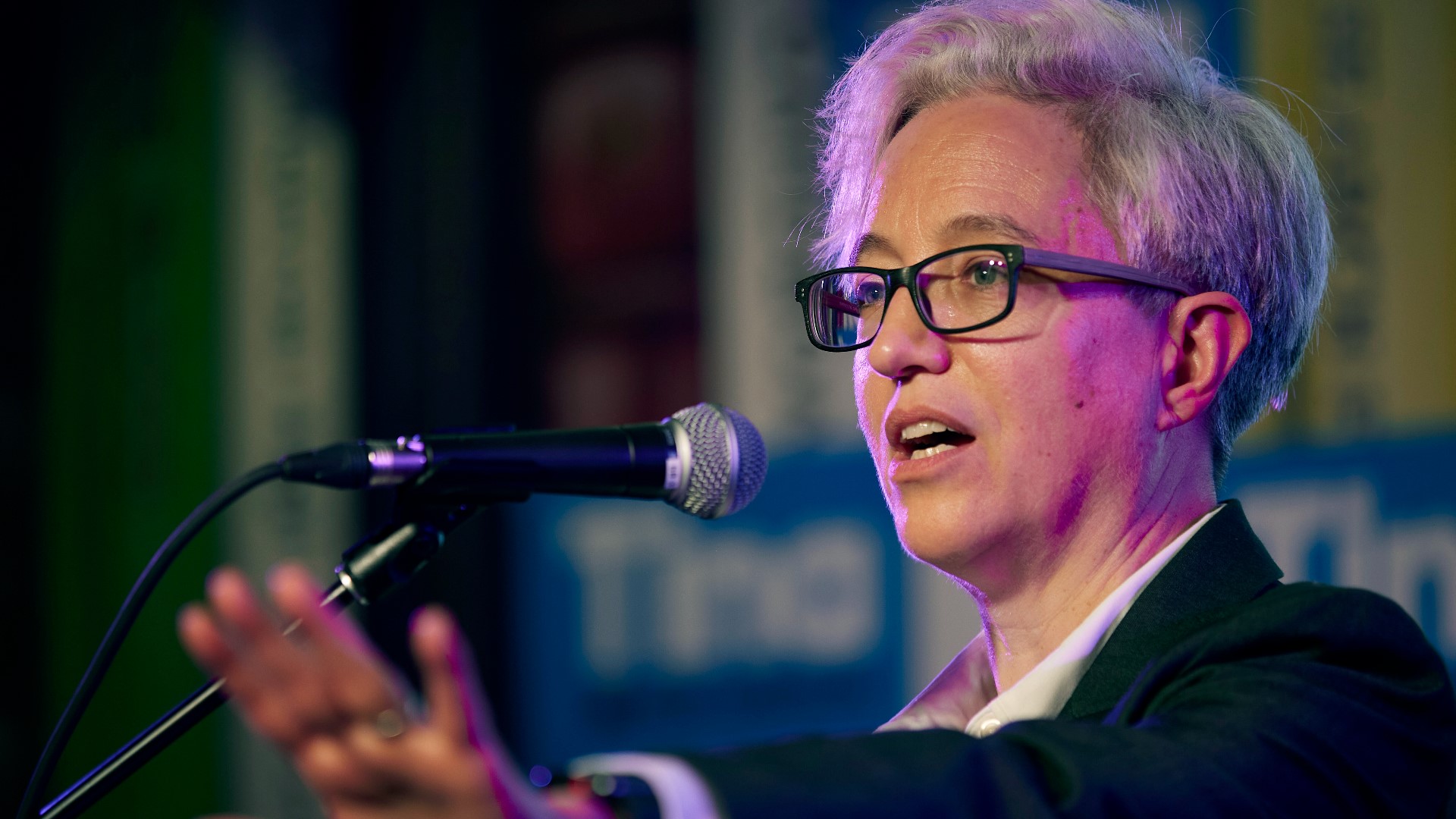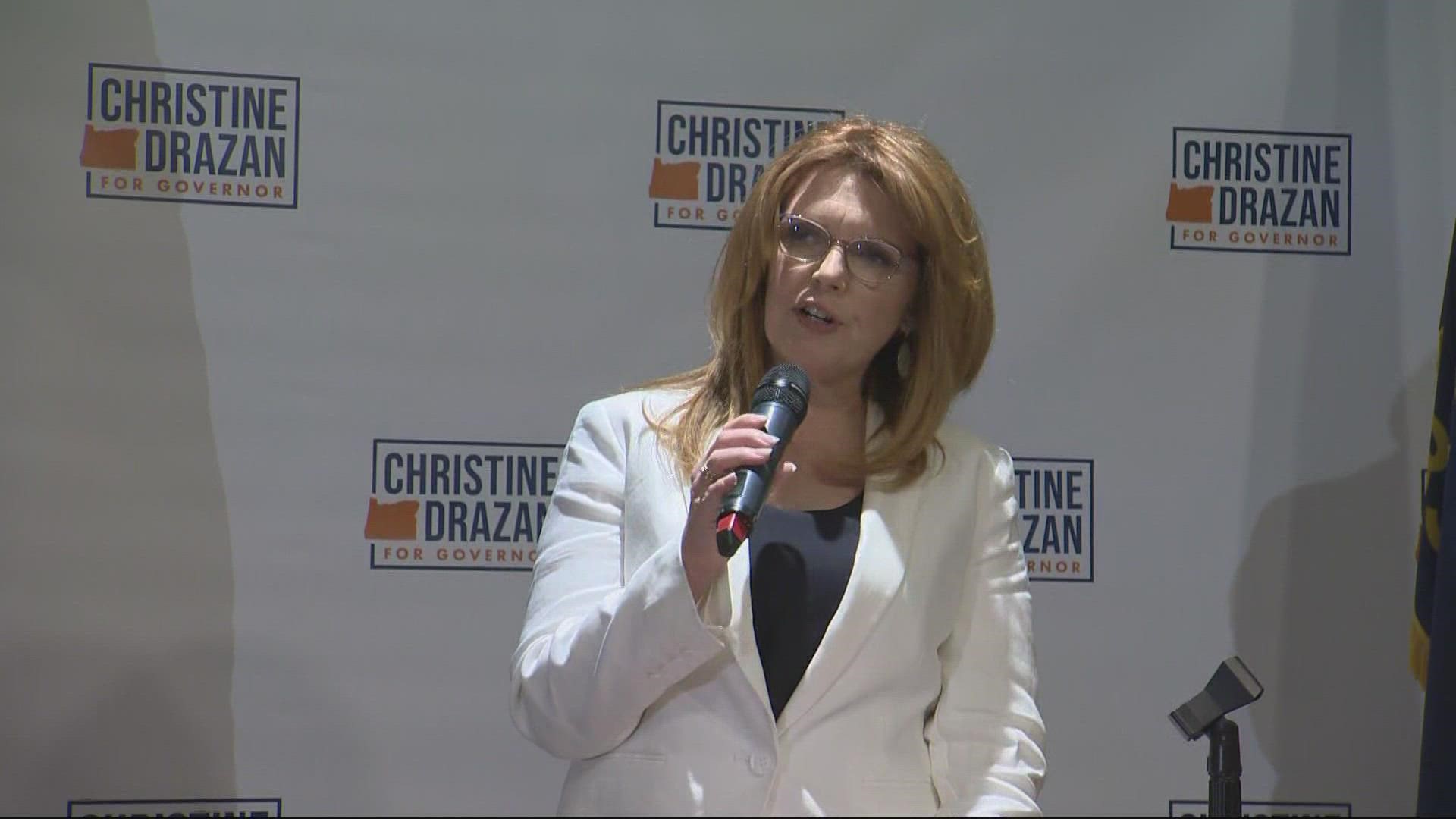OREGON, USA — Former Oregon House Speaker Tina Kotek is projected to win the Democratic primary in the race for Oregon governor, based on early results Tuesday evening. The Associated Press called the race at about 8:30 p.m.
Initial results showed Kotek with about 56% of the vote with about 63% of precincts reporting. Her closest challenger, State Treasurer Tobias Read, stood at 34%.
At a speech at her campaign watch party shortly before 9 p.m., Kotek thanked her supporters and campaign staff, as well as Read and the other Democratic primary candidates. She said Read had called her to concede.
“I think it’s important to remember that all the Democrats in this race share a similar vision for what we want the state to be,” Kotek said. “We’re all going to work together to make sure we win. That a Democrat — that I win in November, because frankly there is just too much at stake.”


On Wednesday, The Oregonian called the Republican primary for former Oregon House Minority Leader Christine Drazan. Business consultant Bob Tiernan trailed Drazan by about 5% and conceded the race to Drazan on Wednesday.
“I wished Christine good luck in her campaign to lead Oregon in a new direction by quickly addressing our out-of-control crime problems, homeless camps on the streets, failing schools, and other problems that need to be fixed to unify all Oregonians no matter where they live in the state," Tiernan said in a statement.
Appearing at a campaign event late Tuesday evening, Drazan stopped short of declaring victory and acknowledged what was at stake in the general election.
"The Oregon we know, the Oregon we love is hurting," she said. "Too many of our neighbors are living on the streets. Schools are failing our kids, and our families are feeling the pinch of high taxes and record inflation."
“Our issues, whether win lose or draw, are the same," Tiernan said in a speech to his supporters on Tuesday. We need to solve our homeless problem here in Oregon. We need that resolution now, not next month, not six months from now, not two years from now. Lawlessness, the crime, the ever increasing crime, the shootings, we need to resolve those.”
Kotek and unaffiliated candidate Betsy Johnson both acknowledged the likely three-way shape of the race heading for the November general election.
“People need to understand there are two conservatives who are going to be running against me in November," Kotek said. "They want to take us backwards, I want to move our state forward, that’s what these results mean tonight, I have a lot of Oregonians supporting that vision."
“Tonight, the political extremes have chosen," Johnson said in a statement. "Tina Kotek is more Kate Brown than Kate Brown and Christine Drazan wants to take away a woman’s right to choose. I know we can get our mojo back, but not with the same old politics of the far left and far right. The biggest change Oregon can make this year is putting the people back in charge with an independent governor loyal only to Oregonians, not the political extremes."
The results below are not final; ballots will continue to be counted and this story will be updated as more results come in.
Keep scrolling past the results for a recap of the race so far and how Tuesday’s primary will narrow things down, plus some procedural notes such as why Johnson didn’t appear on the primary ballot.
Democrats
Republicans
The race so far
Current Oregon Governor Kate Brown is prevented by term limits from running for reelection this year, and the resulting open race drew more than 40 candidates vying for the governor’s desk – 16 Democrats, 21 Republicans, one Independent and three unaffiliated candidates.
A handful of them have already dropped out, and Tuesday’s primary election will narrow things down much further, defining the shape of the General Election race that will play out over the next six months.
Oregon has a closed party primary system for partisan positions such as governor, which means each political party holds a separate primary race to choose one candidate to nominate on the General Election ballot in November.
Only major political parties — which currently means just the Democratic Party of Oregon and the Oregon Republican Party — are allowed to hold their primaries as part of the state-run May 17 election. Minor parties can choose their nominees separately after June 1.
The Democratic primary was largely seen as a contest between frontrunners Kotek and Read, both of whom were far ahead of the rest of the Democratic candidate pack in terms of fundraising and prominence in the Oregon political scene.
Former New York Times columnist Nick Kristof made a big splash when he joined the race as a Democrat in October, but his campaign came to an abrupt end in February after the Oregon Secretary of State’s office ruled that he had not lived in Oregon long enough to meet the state’s residency requirement and the Oregon Supreme Court upheld that decision.
The Republican primary had a wider roster of apparent frontrunners, including Drazan, Tiernan, political consultant Bridget Barton, Sandy mayor Stan Pulliam, small business owner Jessica Gomez and physician Bud Pierce, who previously ran for governor in 2016 and lost to Kate Brown.
There will technically still be six candidates in the overall running after the primary, but the remainder of the race will be centered on three contenders: Kotek, Drazan and the unaffiliated Johnson.
The other three are "Independent" candidate Kevin Levy and unaffiliated candidates Timothy Harold and Dustin Watkins, all of whom are running long-shot campaigns with little to no fundraising or financial backing.
The Independent Party of Oregon will hold its own caucus-based nominating process in July, although party council co-chair Dan Meek said the party has not yet decided whether it will nominate a candidate for governor, and Levy's campaign is not officially affiliated with the party (in Oregon, candidates cannot officially affiliate themselves with a minor political party unless they have been formally nominated by that party).
Since they're not seeking any party's support, the unaffiliated candidates will skip the primary altogether and, if they can amass 23,744 signatures, appear directly on the General Election ballot in November.
Associated Press reporter Sara Cline contributed to this story.


